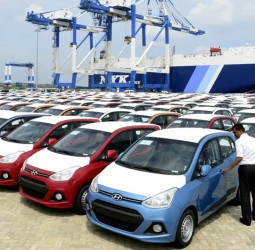By Thareendra Kalpage
In the rapidly evolving landscape of global economics, a new and potent force is reshaping the contours of national policies and international relations: AI nationalism.
This phenomenon is characterised by nations prioritising the development, control, and application of artificial intelligence technologies to secure economic advantages and national security. As AI becomes increasingly integral to economic growth, productivity, and strategic dominance, countries are intensifying their efforts to lead in this critical domain. But what exactly is AI nationalism, and what are its implications for the global economy?
The rise of AI nationalism
AI nationalism can be understood as a strategic focus by governments to foster and control AI technologies within their borders. This trend is driven by several factors:
1. Economic competitiveness: Nations recognise that AI can significantly boost productivity, innovation, and economic growth. Countries leading to AI development will likely dominate future industries and reap substantial financial benefits.
2. National security: AI has profound implications for national security, from cybersecurity to military applications. Ensuring that AI technologies are developed and controlled domestically is vital for maintaining national sovereignty and defence capabilities.
3. Technological sovereignty: Dependence on foreign AI technologies poses risks, including potential espionage, loss of sensitive data, and economic dependency. Countries aim to reduce these risks by developing their own AI capabilities.
Strategies and measures
Governments are implementing various strategies to promote AI nationalism:
1. Investment in R&D: Substantial public funding is directed towards AI research and development. Countries like the United States, China, and the European Union are investing billions to advance their AI capabilities.
2. Education and talent development: Nations prioritise AI experts' education and training. Scholarships, specialised programs, and university collaborations are being established to build a robust talent pool.
3. Regulatory frameworks: Governments are crafting policies to support AI innovation while ensuring ethical standards. This includes data protection laws, AI ethics guidelines, and regulations to foster innovation.
4. Public-private partnerships: Collaboration between government and industry is crucial. Governments incentivise private sector innovation through grants, tax breaks, and joint ventures.
Deciding between AI makers and AI takers
One of the critical decisions that countries must make in this new era of AI nationalism is whether to be an AI maker or an AI taker:
1. AI makers: These countries focus on developing AI technologies, investing heavily in R&D, building a solid talent pool, and fostering innovation ecosystems. Being an AI maker involves significant investment but offers substantial long-term benefits, including technological sovereignty, economic growth, and global influence.
2. AI takers: These countries rely on importing AI technologies developed elsewhere. While this approach requires less upfront investment and allows for quicker adoption of cutting-edge technologies, it can lead to dependency on foreign entities, potential security risks, and missed economic opportunities.
Each nation must carefully evaluate its resources, capabilities, and strategic goals to determine its approach. For smaller countries or those with limited resources, collaborating with leading AI nations or focusing on niche areas within AI might be a viable strategy.
Implications for the global economy
AI nationalism has far-reaching implications:
1. Geopolitical tensions: Competition for AI supremacy can exacerbate geopolitical rivalries. The US-China tech rivalry is a prime example, with nations striving to outpace each other in AI advancements.
2. Economic disparities: Countries with advanced AI capabilities will likely experience accelerated economic growth, widening the gap between AI leaders and laggards. This could lead to increased economic inequalities on a global scale.
3. Innovation ecosystems: AI nationalism can stimulate domestic innovation ecosystems. However, it may also lead to protectionism, reducing international collaboration and knowledge sharing.
4. Labour market transformations: AI-driven automation will transform labour markets. Nations must adapt their workforce policies to manage the transition and ensure workers have the skills needed for an AI-driven economy.
5. Ethical and social considerations: The rush to lead in AI can sometimes overlook ethical considerations. Nations must balance technological advancements with ethical standards to ensure AI is developed responsibly.
Economic impact on South East Asia
Southeast Asia stands at a crucial juncture in the discourse on AI nationalism. The region's diverse economies offer opportunities and challenges in adopting AI strategies. Countries like Singapore are already at the forefront, with robust AI policies and significant investments in AI research and development. Other countries in the region are also making strides, albeit at a varied pace.
1. Singapore: As a regional leader, Singapore's investment in AI is part of its broader Smart Nation initiative. The city-state focuses on creating an innovation-friendly environment, attracting global talent, and fostering partnerships between government, academia, and industry. Singapore's proactive stance serves as a model for other Southeast Asian nations.
2. Malaysia, Thailand, and Vietnam: These countries rapidly advance their AI capabilities. Malaysia's National AI Framework aims to integrate AI across various sectors. At the same time, Thailand's focus on AI is part of its Thailand 4.0 initiative, promoting technology-driven economic transformation. With its strong emphasis on STEM education, Vietnam is nurturing a new generation of AI professionals.
3. Indonesia and the Philippines: These larger economies face unique challenges like infrastructure deficits and digital divide issues. However, both nations are committed to advancing their AI capabilities, recognising the potential for AI to drive economic growth and improve public services.
Economic impact on Sri Lanka
With its strategic location and burgeoning tech sector, Sri Lanka has the potential to become a significant player in AI. Drawing parallels to Portugal in the 16th century, a small country becoming a powerhouse by leveraging its strategic maritime position and advancements in navigation, Sri Lanka can similarly position itself as a leader in AI by capitalising on its unique advantages.
1. Education and talent development: To become an AI maker, Sri Lanka must invest in education and training. Building a strong AI talent pool through partnerships with universities and international institutions will be crucial. The focus should be on STEM education, specialised AI programs, and fostering a culture of innovation and continuous learning.
2. Investment in R&D: Increased funding for AI research and development is essential. Sri Lanka can benefit from international and public-private partnerships to boost its AI ecosystem. Establishing AI research hubs and innovation centres can attract global talent and foster local expertise.
3. Regulatory frameworks: It will be critical to develop robust regulatory frameworks that promote innovation while ensuring ethical standards. Data protection laws and AI ethics guidelines are essential components of this strategy. Transparent and flexible regulations can create a conducive environment for AI startups and investments.
4. Niche focus: Sri Lanka could focus on niche areas within AI, such as AI applications in agriculture, healthcare, and tourism. Leveraging AI to address specific national challenges can position Sri Lanka as a leader. For instance, AI-driven solutions in agriculture can boost productivity and sustainability. At the same time, AI in healthcare can improve access and quality of care.
5. International collaboration: Given its size and resources, Sri Lanka should seek strategic alliances with leading AI nations. Participation in global AI initiatives and forums can help Sri Lanka stay abreast of the latest developments and integrate best practices. Collaborations with countries like India, which has a robust tech ecosystem, can be mutually beneficial.
6. Economic projections: Embracing AI nationalism can significantly impact Sri Lanka's GDP and overall economic growth. According to estimates, AI could contribute up to $15.7 trillion to the global economy by 2030, with Southeast Asia poised to gain substantially. Becoming an AI hub for Sri Lanka could increase GDP by several percentage points annually, driven by productivity gains, new business opportunities, and enhanced competitiveness.
• GDP growth: AI-driven industries can contribute significantly to GDP growth. For example, advancements in AI could boost sectors like manufacturing, services, and agriculture, leading to higher economic output.
• Job creation: While AI will automate specific tasks, it will also create new job opportunities in AI development, data analysis, cybersecurity, and more. Developing a skilled workforce will be critical to harnessing these opportunities.
• Foreign investment: A robust AI ecosystem can attract foreign direct investment (FDI). Global tech companies looking for new markets and innovation hubs may invest in Sri Lanka, bringing capital, technology, and expertise.
• Export potential: AI-driven products and services can become significant exports. Sri Lanka can position itself as a provider of AI solutions in healthcare, education, and logistics, tapping into global markets.
Strategic steps for Sri Lanka
To emulate the rise of 16th-century Portugal, Sri Lanka must undertake several strategic steps:
1. Infrastructure development: Invest in digital infrastructure to support AI development. High-speed internet, data centres, and cloud computing capabilities are essential for fostering a robust AI ecosystem.
2. Policy support: Implement supportive government policies, including tax incentives for AI startups, grants for AI research, and streamlined regulatory processes. Policies should also encourage public-private partnerships and international collaborations.
3. Focus on innovation: Foster a culture of innovation by supporting research institutions, startups, and tech hubs. Establishing innovation clusters and AI centres of excellence can drive AI research and development.
4. Global integration: Actively participate in global AI forums and networks. Engaging with international AI communities can facilitate knowledge exchange, collaboration, and access to global markets.
5. Ethical AI development: Ensure that AI development adheres to ethical standards, protecting privacy, security, and human rights. Ethical AI practices can enhance global trust and open up more opportunities for collaboration.
6. Strategic alliances: Form alliances with countries leading in AI research and development. Partnerships with nations like the United States, China, and Europe can provide access to advanced technologies and expertise.
AI nationalism represents a pivotal shift in the global economic and technological landscape. As nations vie for dominance in AI, their strategies will shape the future of financial power and geopolitical relations. While AI offers tremendous economic growth and innovation opportunities, it also poses significant challenges. Balancing national interests with global cooperation and ethical considerations will be crucial in navigating this new frontier.
As we progress, policymakers, industry leaders, and international bodies must engage in dialogue and collaboration, ensuring that AI advancements benefit humanity while safeguarding national interests. The era of AI nationalism has dawned, and its impact will resonate across the global stage for decades. Each country must decide whether to be an AI maker, leading the charge in innovation and self-reliance, or an AI taker, leveraging global advancements while navigating the risks and dependencies that come with it. The choice of Southeast Asia and Sri Lanka will significantly influence their economic trajectories and roles in the global economy.
By embracing AI nationalism and strategically investing in AI technologies, Sri Lanka can transform itself into a powerhouse like 16th-century Portugal. With the right policies, investments, and international collaborations, Sri Lanka can leverage its unique strengths to drive economic growth, enhance global competitiveness, and secure a prosperous future in the AI-driven world.
(The writer is a highly regarded entrepreneur, startup investor, business leader, contributor to numerous print and digital media news channels, and an avid observer of the global political landscape, economy, and technological and social developments)



 Thishila Mewan
Thishila Mewan



